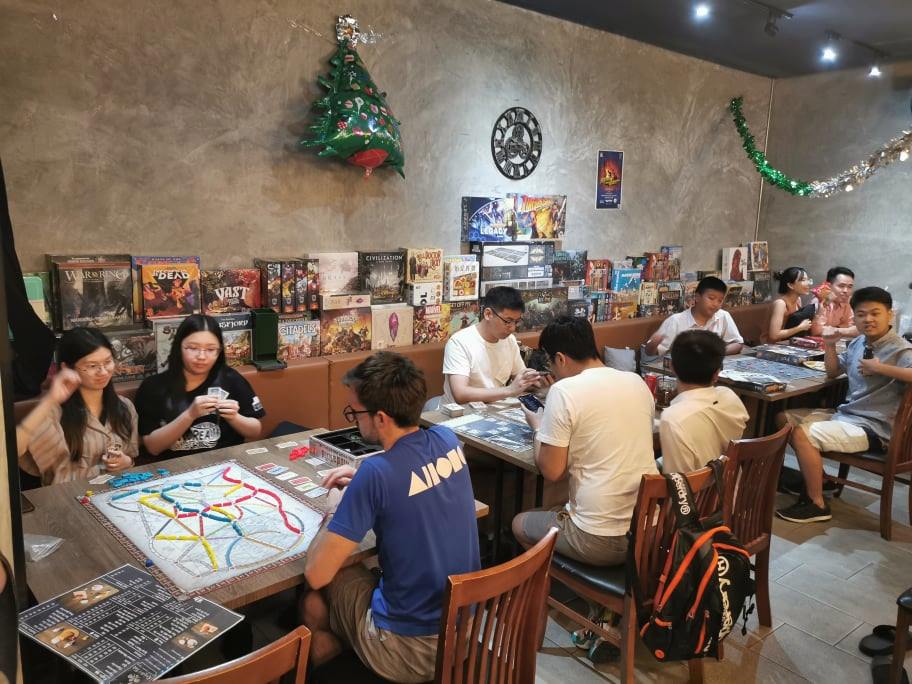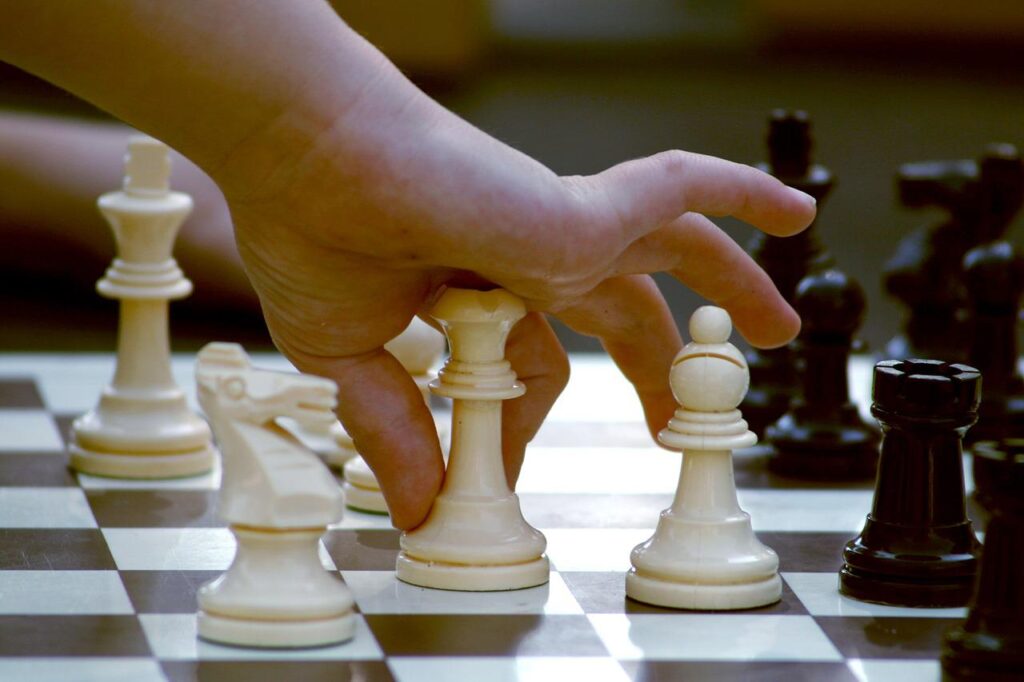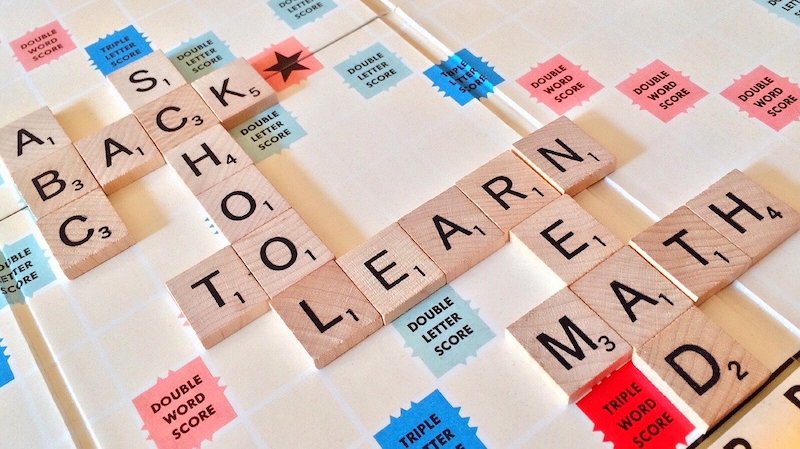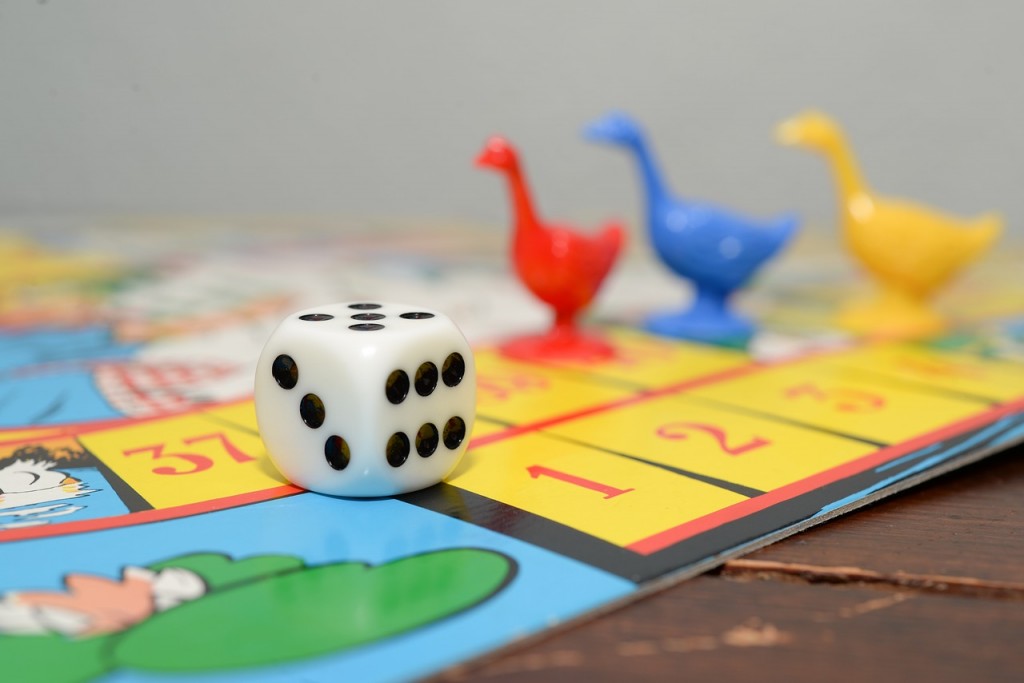What better way to spend your family time together than playing a board game that can improve your child’s skills in many aspects?
Playing games together with your family is not only a great way to spend quality time together, but you also build thinking and learning skills at the same time. Children adore being engaged with their loved ones. They want to please their parents, play with them, and listen to them. Playing board games is an easy and excellent way to spend unhurried, enjoyable time together. As an added bonus, board games are also rich in learning opportunities. Recently specialist board games cafes have sprung up all over Bangkok where you can go and play a huge selection of games, enjoy soft drinks and snacks while finding out who really is the most competitive in the family!

Encourages Cognitive Development
Board games are excellent for your toddlers cognitive development as even the simplest of games includes some kind of strategy as well as teaches them many other important skills, such as sharing, communicating, waiting for their turn, and interacting with others. More importantly, board games can help strengthen your child’s attention span and ability to focus. Also, board games can satisfy your child’s competitive urges and desire to master new skills; skills such as number and shape recognition, grouping and counting, letter recognition and reading, visual perception, color recognition, eye-hand coordination and manual dexterity. Even simple board game like Snakes and Ladders can teach them many life skills – even though your luck can totally change in a moment, if you persist you will eventually reach your goal, and possibly even win. You can be the last one on the board and still have a chance to win.

Choosing the Right Game at Every Age
Although in the long run we need to teach values, ethics, academic skills, and the importance of playing by the rules, in the early years the primary goals are helping your child become more self-confident, ambitious, and to enjoy playing with others. If you’re playing with more than one child, divide the family into teams, giving each player a job he or she can do well: A younger child may be responsible for rolling the dice (which is important, since that is where the luck comes from), and an older child the job of sorting the Monopoly money or managing pieces.
As children approach 5, they have more sophisticated thinking skills and can begin to incorporate and exercise their number, letter, and word knowledge in literacy-based games. By 6, children may prefer more cognitively challenging games like checkers, which requires – and helps develop – planning, strategy, persistence, and critical thinking skills.
More Than a Game cafe has more recommended games for kids, grouped by age.

A Word About Winning
Children take playing games seriously, so it’s important that we help guide them through the contest. When a playing piece falls to a lower level, our kids really feel sad; when it rises up high, they are remarkably proud and happy, even if we adults know that it happened only by chance. Therefore, you need to help balance your child’s pleasure in playing the game with their very limited ability to manage frustration, and how to deal with the idea of losing.
For 3, 4, and even 5-year-olds, winning is critical to a feeling of mastery. So generally, I think it is okay to “help” them win. By about 6, kids should begin to internalize the rules of fair play, tenuous as they may seem to a child who is losing a game. I am also fine with a 6 years old “amending” the rules to win if they feel they have to. I encourage you to acknowledge your child’s need for special rules. At the start of the game, you might want to ask, “Are we playing by regular rules or ‘special easy’ rules today?” (I try not to call them ‘cheating rules’ since if you agree with them they aren’t really cheating.)
Children learn best when they are engaged and having fun and board games are a great way to encourage learning while having fun.
Editor’s Note: With thanks to More than a Game cafe.














